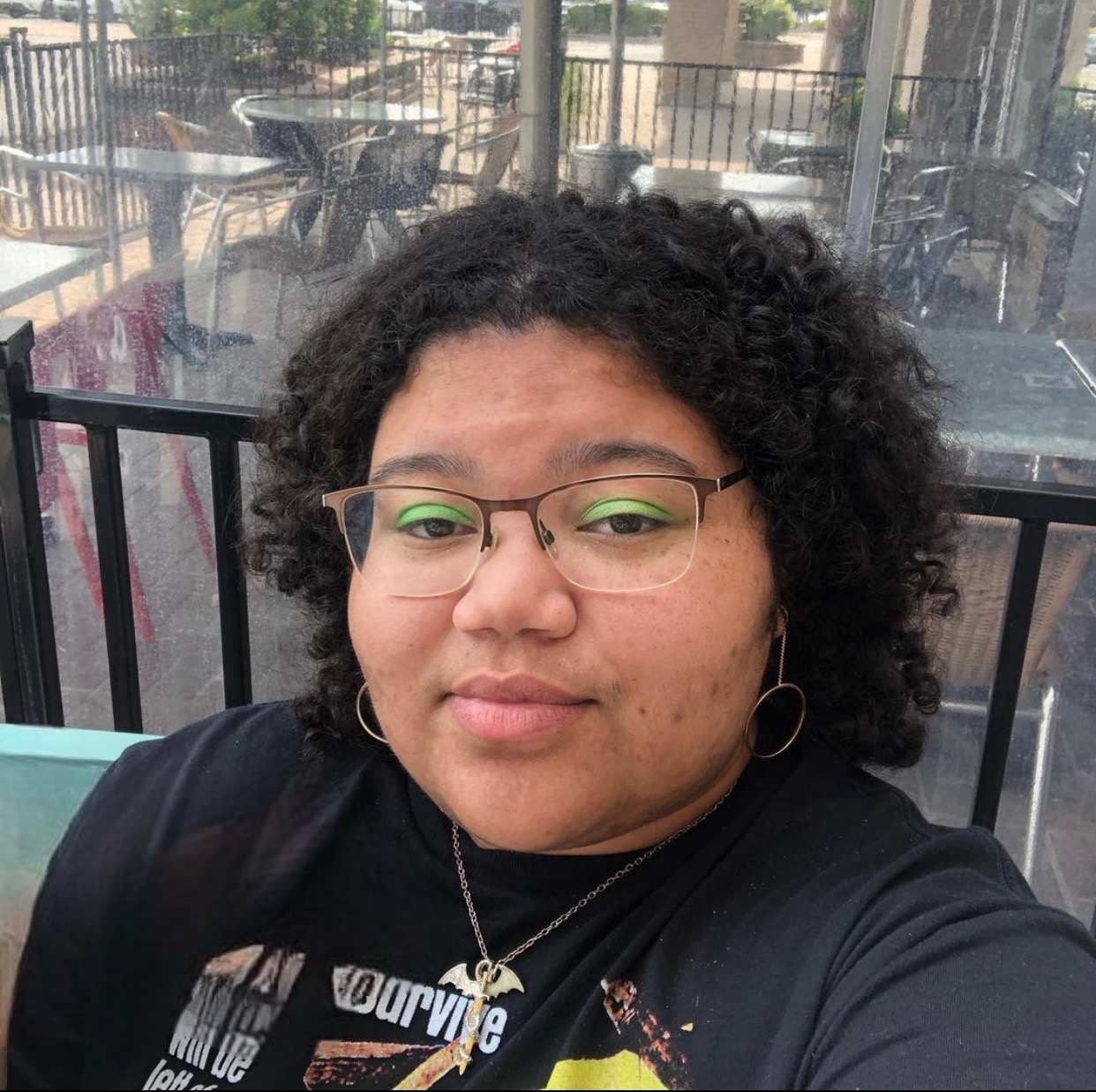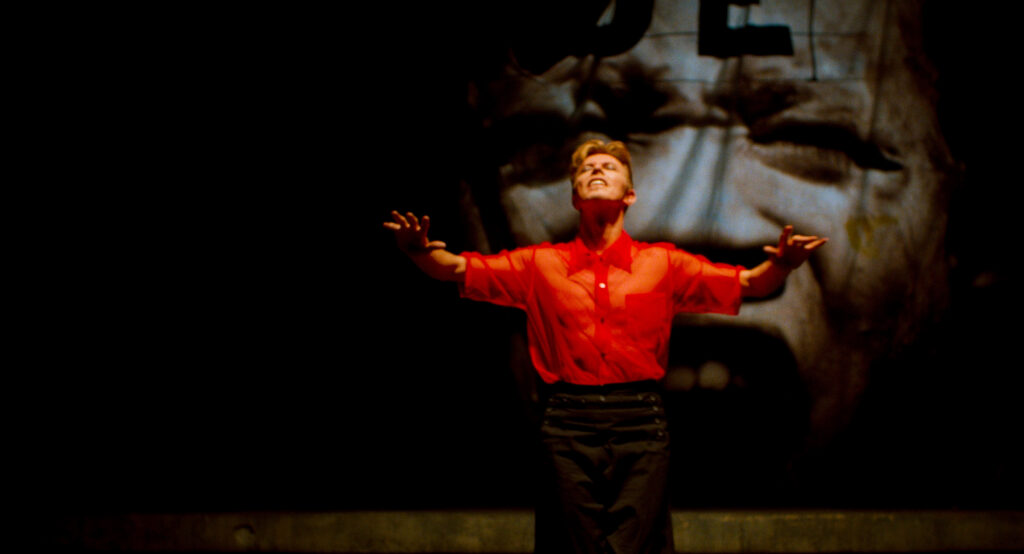Having already established himself as a fresh voice in the world of documentary filmmaking with his 2002 documentary “The Kid Stays in the Picture,” Brett Morgen truly came to prominence with “Cobain: Montage of Heck,” (2015). The film utilized archive footage and home videos to intimately display Kurt Cobain’s life, leading up to his death. Offering a tender and empathetic look at one of the most troubled figures in rock music, the project solidified Morgen as an artist who understands the weight of making films about beloved subjects.
Morgen’s latest, “Moonage Daydream,” premiered at Cannes and will be theatrically released on September 16th. Again, he uses archival footage to tell the story of a beloved figure in music. But this time, instead of presenting an audience with a clear-cut narrative, Morgen has created a kaleidoscopic phenomenon. The film abandons the classic documentary style, treating “Moonage Daydream” instead like a concert. It’s a breath of fresh air, especially since the COVID-19 pandemic has made live music inaccessible to many people.
I spoke with Morgen ahead of the film’s TIFF premiere, and was struck by how humble and excited he was about this project. We discussed rock star subjects, Bowie’s personal philosophies, and the impact music can have on us.
How did working on “Moonage Daydream” differ from “Montage of Heck”?
Well, “Montage of Heck” is a very linear cradle-to-the-grave narrative. Writing the film was a relatively painless and simple procedure. With that one in particular I kind of worked backwards from “why did Kurt kill himself?” to his birth and worked it back up.
“Moonage Daydream” was created and designed not to be a biographical movie, but to be an immersive cinematic experience that invites the audience to swim for two hours into the mind and creative imagination of David Bowie. It was unbelievably challenging to try to write a narrative that didn’t feel like a narrative. You know without having the biography, the Wikipedia, to kind of hang the thread on. But, David Bowie—one of the unique aspects of him was he was always kind of an enigma, he was always sort of mysterious and that’s the magic about him.
It felt like instead of diving into who David Bowie was. You focused on the persona of David Bowie.
I don’t want to go into the cinema and watch people talking. That’s not what I’m interested in. People can do that but I don’t know why that would be in a film … Like, here’s the deal. I wanted to create a spectacle. To me, this was my Marvel movie. Bowie was a better hero to me than Thor; he was a better hero to me than any of the Marvel characters. He did things no other human has done.
I don’t go to the movies to get facts that I can read in a book I go to [get an] experience. When I was a kid the stuff that I loved was “Fantasia,” “Pink Floyd: The Wall,” stuff that you could just swim in. This whole thing started because … I wanted to take over the IMAX system to play some killer David Bowie music and create [a] trippy sublime experience. That’s what I wanted to do before I got to Bowie’s interview [footage].
That’s what the idea was: to create almost like a theme park ride at Disneyland.

It’s nice because we’ve been living in a world with COVID and not many people have gone to live concerts for the past two and a half years so this felt very immersive.
I really hope people go out in the first few days when there’s crowds there because I do—COVID aside, hopefully with masks on—I do feel that it’s a really communal experience and there is something … I’ve been on this festival tour since Cannes seeing [the film] with 2,300 people at a time and it’s kind of awesome. To have everyone sort of go “woah,” it’s been great.
While you didn’t know Kurt, you did meet with David in the 2000’s. Did that make this process easier or harder on you?
It did neither, however it was something that I was able to reference in axis, because [it was] one of the things that I didn’t appreciate because I wasn’t thinking about it when I met him, but … [what] I soon came to really appreciate after looking at footage of him for two years was how present he was. In every moment in life he wanted to feel, he wanted to experience. David understood from the very beginning how limited our time on earth was and he wanted to make the most of every day. He tried to make going to the supermarket an adventure.
The thing is most of us really like to be comfortable. It’s like “I wanna have a big house, I wanna be comfortable,” but David didn’t have a house until he was in his forties. When you think about it, when we’re really comfortable, we’re [so] sheltered until we’re shutting ourselves off to experiences. If you become super rich and you stay at the Ritz Carlton in the Dominican Republic, you’re not experiencing the Dominican Republic. Bowie really wanted to experience.
The difference between Bowie and almost any other popular artist in my lifetime was, he would have risked it all to satisfy a creative itch. He never did anything–until this one period in the ‘80s—that wasn’t serving him first. If the audience wanted to come along, terrific, but it was really about making life an adventure. He’s like Neil Armstrong, he’s like an explorer! David Bowie set sail without a map, through life. He was as close to immortal as anything I’ve observed doing these types of deep dives.

Did that aspect of his life impact you in any way while making the film?
Oh, it had a profound impact on my life … I had a heart attack right when I was starting the film and I flatlined on my daughter’s birthday. It’s kind of eerie but one year after David died, I was in a coma.
It was mainly because from the time I was 12 to the time I was 47, I went pedal to the metal. I partied hard. My friends used to describe me as a tsunami. Terrible eating, [no] exercise, work, stress … and when I had a heart attack the first words out of my mouth to the surgeon were “I need to be on set on Monday. I’m directing a very important pilot for Marvel.” I pulled the cords [out] two days later to go do some auditions. Then I started listening to Bowie.
I’ll be honest with you, I have three kids. And I was always working. I’d get Fathers Day cards like “Hey dad, thanks for showing me a great work ethic.” And I was [thinking] what are my kids gonna say … Because honestly the message of my life [used to be] “work your ass off and die at 47.”
I realized that through David I can offer my children a roadmap on how to get the most out of life, while still having a balance and how to surf the chaos. That’s kind of the message of David. We do live in a chaotic and fragmented world and culture and you can kind of fight that or you can swim with it. He really led by example.
The film’s ending feels hopeful rather than sorrowful which is how you would expect it to end. Was it important for you to lift audiences up in those final moments?
The first thing I knew going into this was Bowie dies at the end. He has this amazing video Blackstar that’s one of the greatest thematic music videos in history, so when I got the project I was like “This is great we’ve got a natural ending.” But, as I listened to Blackstar, I [realized] this [would be] a little heavy to go out on.
I opted to use it as a starting point. Really the end [of “Moonage Daydream”] is a celebration and what the end is suggesting is that David Jones died in 2016, but Bowie is forever. And that’s because we’re Bowie. We get to pick up the torch. In the [Blackstar] video you see these women at some sort of seance where they take this crowned skull and they put it on [one of the women’s] backs. The idea is that she is now the next incarnation. David Jones may not be here, but we didn’t know David Jones. Now we get Bowie to inspire us … even though he’s no longer here.
“Moonage Daydream” is now playing in select theaters.












